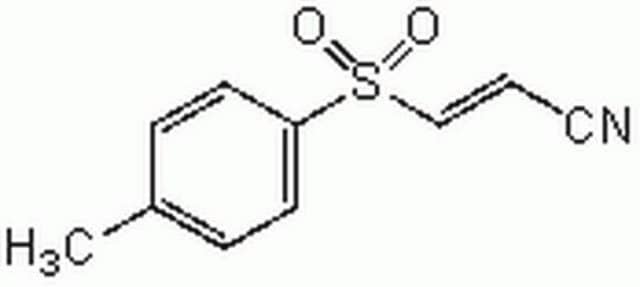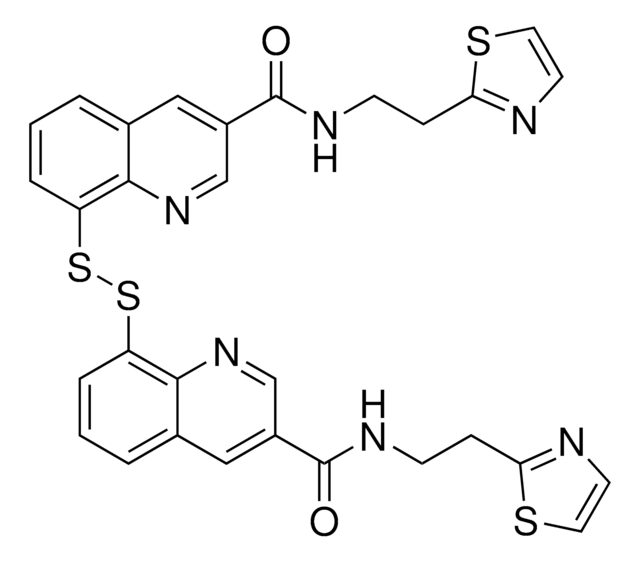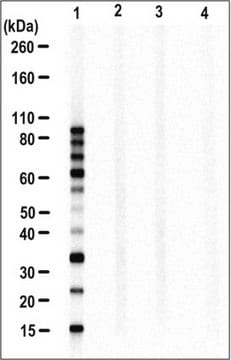SML0430
PR-619
≥95% (HPLC)
Synonym(s):
2,6-Diamino-3,5-dithiocyanopyridine, Thiocyanic acid C,C′-(2,6-diamino-3,5-pyridinediyl) ester; 2,6-Diaminopyridine-3,5-bis(thiocyanate)
About This Item
Recommended Products
Quality Level
Assay
≥95% (HPLC)
form
powder
color
white to beige
solubility
DMSO: 5 mg/mL (clear solution)
storage temp.
−20°C
SMILES string
Nc1nc(N)c(SC#N)cc1SC#N
InChI
1S/C7H5N5S2/c8-2-13-4-1-5(14-3-9)7(11)12-6(4)10/h1H,(H4,10,11,12)
InChI key
ZXOBLNBVNROVLC-UHFFFAOYSA-N
Application
- as a component of lysis buffer and also as a deubiquitinase inhibitor to treat proteins derived from SILAC-labeled Jurkat cells
- as a pan-deubiquitinase inhibitor to study its effect on adenoassociated virus (AAV) transduction
- in radioimmunoprecipitation assay buffer (RIPA) buffer used for ubiquitination assays
Biochem/physiol Actions
Storage Class Code
11 - Combustible Solids
WGK
WGK 3
Certificates of Analysis (COA)
Search for Certificates of Analysis (COA) by entering the products Lot/Batch Number. Lot and Batch Numbers can be found on a product’s label following the words ‘Lot’ or ‘Batch’.
Already Own This Product?
Find documentation for the products that you have recently purchased in the Document Library.
Customers Also Viewed
Our team of scientists has experience in all areas of research including Life Science, Material Science, Chemical Synthesis, Chromatography, Analytical and many others.
Contact Technical Service













